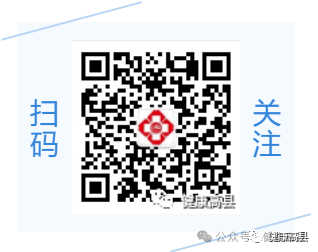In the fast-paced modern life, more and more people are beginning to pay attention to health and wellness. Traditional Chinese Medicine (TCM) emphasizes the balance and harmony of the body. It not only focuses on the treatment of diseases but also emphasizes how to live in a healthy state to prevent the occurrence of diseases. The Five Seasonal Health Practices are an important component of TCM, closely related to the changes of the seasons, providing guidance on how to adjust lifestyle according to different seasons.
The Five Seasonal Health Practices are based on the ancient Chinese division of the year into five seasons, each corresponding to different health principles. The goal of this practice is to help people better adapt to changes in the natural environment to maintain bodily balance. It emphasizes dietary adjustments, exercise, emotional management, and lifestyle changes that align with seasonal variations to ensure long-term health.
Spring
Season
Health
Practices
Spring corresponds to the liver. Spring is the season of renewal, and just as nature revives, people also need to rejuvenate during this time. The principles of spring health practices include detoxifying the body, consuming fresh vegetables and fruits, and engaging in moderate outdoor activities. This season is associated with the TCM element of “Wood,” which helps to regulate liver function, reduce stress, and enhance immunity.
Summer
Season
Health
Practices
Summer corresponds to the heart. The high temperatures of summer can burden the body, so the focus of summer health practices is on preventing heatstroke and cooling down. It is recommended to stay hydrated, avoid excessive sun exposure, and reduce the intake of spicy foods. Summer health practices, associated with the TCM element of “Fire,” help balance the functions of the heart and small intestine while protecting the skin from UV damage.
Late Summer
Season
Health
Practices
Late summer generally refers to the months of June and July in the lunar calendar. TCM has long held the theory that “the spleen is the foundation of postnatal life and the source of qi and blood transformation.” Without a late summer, even if plants flourish, fruits will not form, leading to no harvest in autumn and no storage in winter. In terms of diet, it is advisable to consume foods that clear heat and eliminate dampness, such as winter melon, adzuki beans, carp, and coix seeds, while avoiding sour, spicy, hot, and greasy foods. Therefore, late summer is a crucial time for strengthening the spleen and treating spleen-related issues.
Autumn
Season
Health
Practices
Autumn corresponds to the lungs. Autumn health practices prepare the body for the cold winter. During this season, people should focus on food choices, consuming foods that nourish yin, such as pears and mushrooms, to moisten the lungs and alleviate dryness. Additionally, autumn exercise helps improve immunity and reduce common cold and allergy symptoms.
Winter
Season
Health
Practices
Winter corresponds to the kidneys. Winter health practices emphasize warmth and stimulating the body’s yang energy. It is recommended to wear sufficient warm clothing, avoid overexertion, and consume warming foods such as ginger and lamb. Winter health practices, associated with the TCM element of “Water,” help strengthen kidney function, maintain internal balance, and prevent colds and joint pain.
Understanding the Five Elements Theory in Health Practices
The Five Seasonal Health Practices incorporate the Five Elements Theory of TCM, which includes the concepts of Wood, Fire, Earth, Metal, and Water. Each season is associated with one of these elements, helping us better understand the principles of seasonal health practices. For example, spring is related to the Wood element, emphasizing liver regulation; summer is associated with Fire, focusing on heat prevention; late summer relates to Earth, emphasizing dampness elimination and spleen strengthening; autumn corresponds to Metal, focusing on nourishing yin and lung health; and winter is associated with Water, emphasizing kidney nourishment and foundational support.
Personalized Health Recommendations
Most importantly, the Five Seasonal Health Practices are not rigid rules but should be adjusted according to individual constitution, lifestyle habits, and environment. Everyone can develop a personalized health plan based on their circumstances. If needed, consulting a TCM practitioner or wellness expert can provide more specific advice to help implement these health practices effectively.
Conclusion and Encouragement
The Five Seasonal Health Practices represent a wise way of interacting with the natural environment, maintaining bodily balance and health through adaptation to seasonal changes. The ancient TCM health practices have been passed down for thousands of years, remaining unchanged. They are not merely a medical method but a philosophy of life that guides us on how to live harmoniously with nature in pursuit of overall health and happiness.
Through the detoxification and rejuvenation of spring, the heat prevention of summer, the spleen strengthening and dampness elimination of late summer, the yin nourishing and lung health of autumn, and the warmth and yang stimulation of winter, along with the guidance of the Five Elements Theory, we can better understand our bodily needs and take appropriate measures to maintain balance. This not only helps prevent diseases but also enhances our quality of life, allowing us to have more energy and vitality to pursue our dreams and goals.
Therefore, we encourage everyone to actively adopt the Five Seasonal Health Practices and incorporate them into daily life. Regardless of your current health status, you can benefit from them. It is also recommended to collaborate with a TCM practitioner or wellness expert to obtain personalized advice for better adaptation to your constitution and living environment.
Source | Jiang Shanggui
Editor | County Health Bureau (Xuan)
Reviewed by | Huang Jing
Approved by | Lai Qin
Tip-off |Email:751204219@qq.com.


